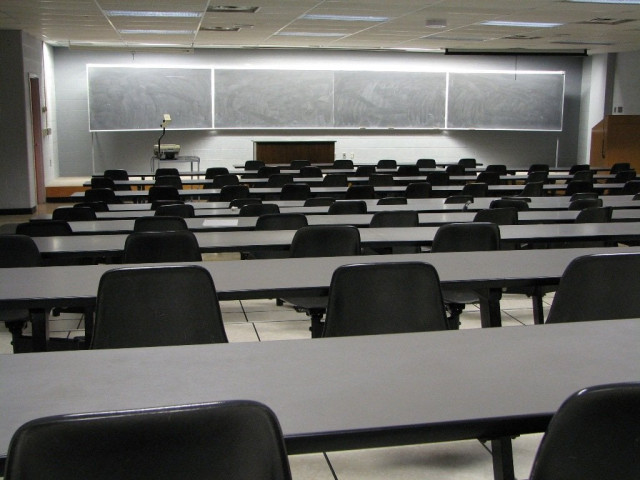School enrolment: 25% of class IX students could drop out
‘Most drop out because of missing facilities and poor education standards’.

‘Most drop out because of missing facilities and poor education standards’. PHOTO: FILE
As many as 38 per cent of the children in Lahore, old enough to be in school, are out of school and another 25 per cent children will likely drop out in the transition from class IX to class X. The statistics were revealed by the Institute of Social and Policy Sciences during an All Parties Conference on Tuesday.
The event was organised by the ISAPS in collaboration with the United Kingdom’s Department for International Development (DFID). The participants deliberated on the Punjab Education Budget for 2013-2014.
Ahmed Ali, a research fellow at the ISAPS, spoke about the status of education in Lahore. He said 7 per cent of the children enrolled in class 1 in public schools dropped out before completing primary education. He said most students dropped because of missing facilities and poor education standards in public schools.
While 0.3 per cent schools in Lahore did not have drinking water, 2.2 per cent lacked boundary walls and 1.8 per cent of the schools were without electricity, he said. Ali also pointed to disparities in addressing the needs of classrooms in schools located in various constituencies of Lahore. Three constituencies, PP-158, PP-159 and PP-160, had schools where the teacher to student ratio exceeded 1:51...in an extreme case 1:290.

Ali said one of the government’s biggest achievements had been the successful enrolment of 3.5 million out-of-school children in the Punjab till October. He said, the greatest challenge now was to retain these children. For that, Ali said, the government should focus on improving the training and monitoring of teachers. He said 144,000 new teachers were required for the additional students enrolled.
The legislation on Article 25-A, right to free and compulsory education, is still pending in the Punjab, Ali said, although a bill was drafted last year. He said a private member’s bill presented in the Provincial Assembly in this regard had been sidelined in the wake of certain objections. The government claims that the attendance of teachers and students stands at 92 per cent, he said, the real question remains “what are the children actually learning at schools?”
Budgetary allocations 2013-14
Of the Rs15.5 billion allocated for school education development in 2013-2014, Ali said, Rs6 million have been released till December. Around Rs3.85 billion, of the Rs7.7 billion allocated for missing facilities, have been released and 34 per cent of those funds have been utilised. These funds have been used to provide missing facilities to schools in southern districts of the Punjab. Ali said 26 per cent of the provincial budget was allocated for education. The education budget has been increased from Rs220 billion last year, to Rs232 billion for 2013-14.
Politicians
Amna Ulfat of the Pakistan Muslim League-Quaid expressed concerns over the budgetary allocation for education. Despite an apparent increase, she said, the allocations cannot be considered an effective increase in view of the growing inflation. “The allocation does not account for inflation,” she said. In real terms, the allocation has in fact decreased instead of increasing, she asserted
Muttahida Qaumi Movement’s Hashim Raza said there was a lack of ownership of schools and the education system in general. The education budget should have been 5 per cent of the GDP rather than of 2.2 per cent. “Allocations should not be for window dressing, they should address ground realities and needs,” he said.
Former minister for education Mian Imran Masood expressed concern at the out-of-school-children figures.
Awami National Party’s central general secretary Ahsan Wyne called for a uniform syllabus so that students were provided uniform quality of education throughout the country. He said the quality of education and expenditure were major challenges that needed to be addressed.
Published in The Express Tribune, January 1st, 2014.



















COMMENTS
Comments are moderated and generally will be posted if they are on-topic and not abusive.
For more information, please see our Comments FAQ